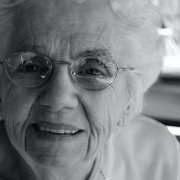Making A Senior Living Community Feel Like Home
Transitioning to a new senior living community can be difficult for everyone involved in caring for someone with dementia. Plans and arrangements take a lot of time and effort to make, so when it’s finally moving day, there can be quite a few emotions involved. While moving your loved one to a community can be the best decision for them, it can also be hard for them to leave their home environment. This article will explore some ways that you can make this transition go more smoothly and how you can make their new home be as comfortable as possible. The Orchard at Brookhaven staff is also here to help you and your loved one through this entire process.
Tips When Moving Into A Senior Living Community
- Label your loved one’s items. Whether they are in the early or late stages of dementia, remembering things can be a struggle for seniors. It is best to label items so that a) they don’t go missing and b) they can be easily located if lost or misplaced. It can be difficult for employees at a care facility to keep up with residents’ items, so having a label makes things much easier on everyone.
- Set up family photos. Make sure your loved one has plenty of reminders of family situated around their new home. These photos can help them to remember who people are and also make them feel comfortable when they might be lonely.
- Create an activity box. Creating a box with meaningful activities can give residents something to do along with helping them to connect to something they care about. For example, if your loved one was a nurse, include items nurses frequently used (stethoscope, bandaids, gloves, etc.) so that they can have something purposeful to do.
- Make it feel like home. Bring as many items from your loved ones house that you can. Blankets, pictures, books, and pillows are all small things that can really help warm their new environment. Try to arrange the items in a way that reminds your loved one of their prior home. Seniors with Alzheimer’s or another form of dementia take comfort in what they recognize. Help them decorate a room that will be calming and comfortable.
- Create a Reminiscence Board. Create a Reminiscence Board full of photos of the important people and events in your senior loved one’s life. Label each photo. It can provide conversation starters for staff when they are first getting to know your family member.
- Decorate your loved one’s room to display her personality. Decorate your loved one’s room with items that define who this person is. You want staff to be able to know something about them the minute they walk in the room. An example might be a person whose hobby was making quilts. You could put a beautiful quilt on the bed or on the wall, and bring her sewing box with fabric pieces, yarn, thread (no pins) patterns, measuring tape, etc.).
- Decorate your loved one’s door. Decorating the door to your loved one’s room can be a great visual cue. They can more readily recognize which room is theirs. Also, decorating the door with your loved one could be a meaningful activity for you do to with them. Spending quality time with you or someone in their family is a great way to make new memories in a new place.
- Recreate as much of the home environment as possible. People living with dementia benefit from familiar surroundings. Before moving day, work with the staff at your senior loved one’s new home to try to recreate as much of their home environment as possible. It can help to decrease their anxiety and agitation. Think about what some of their favorite things from home are and try to have them in place at the assisted living community before they arrive.
Moving to a new place can be scary. Fortunately, there are many actions you and your loved ones can take to make sure that this transition goes well. It’s important to collaborate with the staff to make sure that your loved one has the best experience possible. Orchard at Brookhaven’s staff prides ourselves on working with you and your family to make this transition as seamless and enjoyable as possible. Please contact us to learn more about our community.










